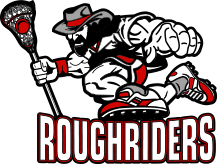Q & A With Former Roughriders
Below is a list of questions that we have obtained from U.S. Lacrosse that we believe each high school lacrosse player should keep in mind if their goal is to continue playing at the collegiate level. To help give you some insight on how some of these questions can affect the decision making process, we have sent this list of questions to former college lacrosse players, many of whom are Maryland Roughrider Alumni, to see how each question impacted their decision to attend their respective schools. We hope that by reading the answers submitted by former college lacrosse players, it will help you determine what is important to you and your family before making a commitment to a college or university.
Does the school offer my preferred major?
- Taylor Stothoff – Before I chose to go to Penn State, I did some research on their website, and looked over all of the majors that I might be interested in if I decided to attend PSU. Since Penn State is such a big school, I had a plethora of majors to look at, which I thought was a good thing. I’ve played sports all my life, and knew that I wanted sports to continue to be a part of my life after college, so I looked into Penn State’s impressive Recreation, Parks, and Tourism Management major, specifically their event management option. I was hooked the minute I started reading the details of the major because it was very sports driven, and because I was so interested in this major that Penn State had to offer, it helped me make my choice of committing there.
- Travis Puls – Sometimes, as a student going into college, you may know what you want to major in and you may not. It’s perfectly fine if you don’t, a lot of students don’t know, when entering college. For me, I had an inkling of what I wanted to major in, and it played a role in deciding where I wanted to go. I had gone into school as a communications major, but after my first year I decided that it wasn’t for me. Being involved in sports all my life, I knew I wanted to further that career after school. Luckily, my school had a sports management program. I switched my major after the first year and loved everything about it. So, you may know what you want to do in college, but you can always change your mind if you see a different future for yourself.
- Ryan Corrigan – Belmont Abbey has a wide variety of majors to choose from. Personally, I decided to major in Sports Management with minors in business, marketing and entrepreneurship. One of the unique academic benefits that Belmont Abbey offered me was the opportunity to take night classes. I had a regular course load each semester but would also take classes after practice in our night program. These classes were about 2 hours long and would be completed in about half of a regular semester.
- Justin Ward – Loyola afforded multiple options in regards to preferred majors. As a high school senior I envisioned that I wanted to be an Accounting major. After my freshman year (and first accounting course), I realized that accounting was not for me. Due to the plethora of majors offered to undergraduates, I was able to switch my major to finance, which I enjoyed far more.
Are my grades and test scores good enough to gain admission?
- Greg Edmonds – During my visits to schools, this was often the first topic of discussion because many coaches don’t want to bother recruiting someone they know will be a stretch to get into their institution. The way it was explained to me is that there is somewhat of a “sliding scale” that college coaches use to determine how hard it will be to get you into their school. If you’re GPA is high, then your SAT scores don’t need to be as high, and vice versa (however, the coach obviously prefers you have a high GPA and SAT score together). I would still recommend that you apply to the schools you are interested in that you may think are a stretch because in many cases the head coach is allowed some leeway in terms of getting certain kids into the school for athletics.
- Jack Runkel – My grades themselves were great and I believed that they didn’t reflect my scores on my SATs. Loyola is “SAT Optional” meaning you don’t have to post any test score if you choose not to but the moment you submit one score they see every attempt that was made.
Does the school fit with my academic ability?
- Matt Dusek – This was an extremely important decision for me. My parents always told me to go to the best school I could get in to. You want to make sure that you push yourself in both athletics and academics with your school choice but you also need to be reasonable with yourself. You need to decide when push comes to shove what is more important, lacrosse or schoolwork?
Does the athletics department provide an academic support program for student-athletes?
- Ryan Corrigan – Belmont Abbey offered athletes great academic support programs. Each of us had study hall with a variety of different tutors. This extra help assisted me in staying ahead of my classwork during the peak of our spring season.
- Jimmy Marlatt – The balance between academics and athletics was something that was very important to me during my recruiting process since lacrosse can only take you so far. Looking back I think it is even more important than I realized, and one of the ways that lacrosse programs differentiate themselves the most. There are a lot of lacrosse schools that have strong academics, but not all of them set up their student-athletes to succeed. I would look at graduation rates, study hall programs, academic counselors, and support scheduling classes. I would also suggest looking into how many players have faced academic issues, and how many were able to turn it around. Balancing academics and athletics is not easy so it is important to have an athletic department that supports you, and a coaching staff that understands what is important in the big picture.
Is the coach made aware of the student-athletes’ academic standing on a regular basis?
- Taylor Stothoff – Yes, during my time at Penn State, the coaches were always aware of my grades. Every player on the lacrosse team had two advisors, an academic advisor and an athletic advisor. Both advisors would contact my coaches when they had good news or for the majority of the time, they would contact my coaches when they saw that I was slipping. For instance, if I were to receive a poor grade on a Biology exam, the coaches knew about the grade before I did, and more times than not, my coach would pull me into his office to talk about the poor grade, not just to scold me, but to ask if there was anything he or other academic support programs could do to help me improve my grade.
Does the school/coaching staff have their own academic requirements to play, outside of the NCAA guidelines?
- Ryan Corrigan – Our coaches held us to a higher standard when it came to academics. The NCAA requires athletes to have at least a 2.0 GPA; our coaching staff wanted us to maintain at least a 2.6. If we were under that standard we would have weekly meetings with advisors and a series of tutors, focused on the classes that we were struggling in.
Can I be a successful student and athlete in my preferred major?
- Taylor Stothoff – There is a reason why student is before athlete. Although I spent a lot of time with my team on the field, in the weight room, and in the film room, the athletic and academic staff support at Penn State always gave me the tools, and opportunity to be the best student that I could be, therefore my coach would always tell me that, “There was no excuse as to why I couldn’t do better on my homework, paper, or exam.” For example, our study hall was in the same building as our locker room, therefore it was easily accessible, and we were able to sign up for FREE tutors, where we could set up study sessions with the tutors on our own time.
- Travis Puls – For me, I was able to be successful as a student-athlete in my major. Your coach understands there may be some conflicts with practices and classes, and they understand that the student part of college comes before the athlete. They try to have you schedule classes during non-practice times, but as you get older, some requirements for your major will conflict. This is ok, because coaches, as well as advisors, had me talk to my teachers in advance, so that they knew that I would be missing certain classes.
Does the school give student-athletes’ first choice for selecting classes?
- Travis Puls – With my school, student athletes didn’t get first choices on classes. It went by seniority. With your major though, you would usually get in the classes that you needed and if you couldn’t, you could always go to your advisor and see if they could get you in, which usually was ok as long as the teacher signed off for it.
- Jack Runkel – One of the biggest draws for me to Loyola was the fact that we were given first priority at classes. I never had any issue getting into a class that I wanted which gave me the opportunity to pursue my major without many road blocks.
- Justin Ward – Preferred scheduling was crucial to my academic success at Loyola. Taking classes at certain times and taking classes taught by particular professors are important to a college student’s success. Because I knew that I was a better student in the morning, I had the ability to take AM classes to afford myself ample time to complete my homework assignments in the evening. Preferred scheduling is also important in regards to one’s practice schedule. Missed practice time could lead to you missing playing time. Make sure your school of interest allows athletes to have preferred scheduling so that you won’t miss any practice time.
Would I get along with players currently on the team?
- Travis Puls – With my team, there were a couple players from my high school, so I knew some of the guys during my visit to Virginia Wesleyan. During my overnight visit, I had a great time with all the players and got along with them really well. I didn’t know any freshman until orientation and when I met them, we all got along pretty well. From that point I knew I made the right decision with choosing the school and team.
- Jimmy Marlatt – The people and culture of a team can be hard to describe, and even more difficult to get to know during a quick recruiting visit. I suggest just trying to meet as many players, coaches, and parents as possible. You should also try to watch and listen to how teammates interact with one another on and off the field. Try to surround yourself with people that will make you better, are dedicated to winning, and know how to have fun doing it.
Are sporting events like football and basketball games a big part of campus life?
- Matt Dusek – This was something I wish I had thought about more when I was choosing schools. I did not think I would mind Drexel not having a football team. Since graduating, that may be one of my biggest regrets. I did not carefully consider how big of an impact a football team would have on me. Then again, depending on what division you play, you may not have time to go to all the home games like a regular student (especially if you have school work too).
- Greg Edmonds – I did not take into account if my school had “big time” football or basketball which is something I would consider more if I could go back in time. I loved playing lacrosse at Johns Hopkins, but I did have friends who went to big state schools with “big time” football and basketball and it seemed like they really enjoyed having that on campus.
- Taylor Stothoff – At Penn State, football is life, so the fall was a great experience because you were able to see all the alumni and die-hard PSU football fans that would come into town to support the team. The tail-gates, the stadium, and the town is an amazing atmosphere, and you could feel the sense of pride that every PSU had for not only the football team, but for the school itself.
- Jack Runkel – This was a huge part in my decision to go to Loyola. Loyola’s main sport was and still is Lacrosse. Basketball is good but they only bring about 1000 fans to games and their court is on campus. Its a great atmosphere but it doesn’t feel like you are watching Duke play or Ohio State play. The Lacrosse team consistently sold out games of over 7,000 fans. Lacrosse being the main sport on campus was a big plus.
Does everyone stay on campus during the weekends?
- Travis Puls – My school was a very small school. When I went there everyone was permitted to live on campus. So everyone usually stayed on campus during the weekends. There were also places to go outside of campus that we would go to if everyone wanted to get off campus for a night. When I was a senior, we were the first class allowed to live off campus. That’s when people would start leaving campus a little more, but with it being so small, most just stayed on campus.
If lacrosse wasn’t in the picture, would I want to go to this school?
- Taylor Stothoff – I think that this is one of the most important questions when deciding on the right school for you. When I first visited Penn State I made sure to keep this question in the back of my mind. My parents and I toured the campus with the coaches, as well as downtown State College where all the restaurants and stores were located. I took everything I saw into consideration, and even though I knew I would be coming here as a student-athlete, I tried my best to picture myself as a regular student. I also looked into everything that Penn State had to offer for regular students, such as clubs, fraternities, and organizations. There was plenty of things for me to do, if I ever decided to go the non-student athlete route, and that made me feel comfortable knowing that there could always be that possibility of a back-up plan.
- Jimmy Marlatt – When making my recruiting decision I always considered if I would be happy there if I was unable to play lacrosse or if the coaches left. Unfortunately, injuries/issues and coaching changes are a part of life at the college level. I always say that coaches may be a reason not to go to a school, but it shouldn’t be the main reason you chose a school. Three of the last five schools I looked at went through coaching changes while I was still playing.
Does the lacrosse team live together?
- Taylor Stothoff – Yes, my team lived in 5 different houses or apartments together. I was lucky enough to live with 7 teammates who were in the same graduating class as me. Even though we had 5 different homes, it was easy for guys to come hang out at either one of the 5 houses, which made for a lot of great, off-field memories together as a team.
- Ryan Corrigan – At Belmont Abbey we had on campus apartments, which were populated primarily with athletes. Everyone on our team lived together—playing a sport makes acclimating to college a much easier process because you instantly have 35 friends. Aside from the on campus apartments we also had team mates who had houses and apartments off campus a few minutes away.
Are there recreational facilities and programs offered by the school?
- Ryan Corrigan – Belmont Abbey is undergoing a lot of renovations right now. They’re putting in a brand new turf facility, new tennis court complex and an entirely new basketball stadium. When I was at school we had all types of fitness classes and leagues that went on throughout the year. We had flag football leagues, 3V3 basketball leagues, etc.
Are lacrosse players permitted to take part in study abroad programs?
- Matt Dusek – I think this is huge. One of my biggest regrets of playing Division 1 lacrosse was not being able to study abroad. Fortunately, I was lucky enough to travel after I graduated and played lacrosse for a couple months in a few places outside the states. Regardless, even I couldn’t have traveled; I do not regret playing college lacrosse. Not everybody will feel the same way, so you need to decide how important traveling is to you or if you think you will get a chance after you graduate.
Do my parents feel this is the best school for me?
- Justin Ward – My parents (and most others) wanted two things for me during the process: a strong degree and the ability to watch me play high level D-1 lacrosse. Loyola provided both of those things.
Is the size of the school the best fit for me?
- Matt Dusek – This was a huge factor in my decision. This question also goes back to “does the school fit in with my academic ability.” I knew I would not pay attention in big lecture halls, even if they were in major courses. You need to be realistic with yourself, and ask, “can I be responsible enough to take care of my own work without a teacher hassling me?” For me, I was worried I wouldn’t pay attention so I wanted to go a school that had smaller classes (similar to my high school); I wanted classes to generally be around 30 people. Some of my classes were bigger, some of them were smaller.
- Greg Edmonds – This was one of the major factors for me in making my decision. I knew I wanted a school that was small to middle sized (small being 3,000 or more undergrad students and middle sized being around 12,000 to 15,000 undergrad students). I took a few visits to schools that were very large (20,000 + undergrad students) and l began to feel like just another number on campus. I wanted to go somewhere where I would know my professors and they would know me, somewhere where I could go seek academic help or a tutor and know them personally. Also, I knew I wanted a school with smaller lecture halls because sometimes classes with a couple of hundred students just turns into a lecture and PowerPoint presentation rather than a classroom.
- Taylor Stothoff– I think this was also a very important factor when choosing the right school for me. I went to a very small high school, and I was used to knowing everyone I saw. Penn State has over 40,000 students, and I thought to myself, “Would I get lost? How would I make friends?” Even though PSU is a huge school, it is easy to make it small. My teammates became my best friends, and in a way, we were like a fraternity. We hung out with each other every day, whether it was at practice, in class, at lunch, or at our house. Being a student-athlete, you are likely to be around other student-athletes too, so I was able to meet other people who were on the football, basketball, track, field hockey, and etc. I was also able to make friends when I lived in the dorms freshman year, and at class, so I was also able to have a range of friends during my time at Penn State.
- Jack Runkel – I went to a very small high school (400 students) so I definitely wanted a small atmosphere and a tight knit community. Loyola is only 3,600 students and definitely has a great community feel.
- Ryan Corrigan – Belmont Abbey is a very small school. The total number of undergrad attendees is about 1,000. I personally really liked the size of the school, I felt like I knew everyone on the campus. When you go to a big school, I think it’s easy to get lost in the numbers. Because the school is smaller our classes only had 25-35 people, this was beneficial for me because I each of my teachers knew me by name when I walked up and asked them a question.
- Justin Ward – As a high school student, most of my classes were about 25 students or less. I felt that I learned best in this environment because I could engage with both my teachers as well as my students. I was a student who needed to have access to my teacher in order to master the material at hand. I knew that I needed to be in a similar setting during my college years. Loyola afforded me the same classroom environment. In my four years at Loyola, I only had one class that had over 30 students in it. Other than that all other classes were small (roughly 25 students) which allowed me to get to know my professors and classmates.
Geographic
Am I comfortable with the distance from home to where this school is located?
- Travis Stothoff – My school was only 4 hours away from home. So it was a nice distance where I was far enough away, but still close at the same time. My parents were able to come down to all my games and that was a deciding factor in my decision.
Is the school located in an area that is desirable to me? (i.e., city, suburban, rural)
- Matt Dusek – This was an extremely important factor in my decision. I knew I wanted to go to school in a city after living in the country for so long. You need to decide what you want to do. Can you stand to stay only on campus the entire time? Or do you want to go out in a city and meet people other than students (of your school)? Or do you want a blend of both of those worlds? Think about what makes you most comfortable and you will have the most fun doing. Personally, I wanted to experience something different and live in the city.
- Travis Puls – My school is located in Virginia Beach, and I have always been a beach person so it was very desirable to me. It was one of the reasons why I chose the school actually. It was nice to be able to head to the beach on the weekends with my teammates, relaxing and having fun in nice weather.
- Ryan Corrigan – Belmont Abbey is about 15 minutes from Charlotte, NC. This was one of my favorite parts about the school. We had the opportunity to go downtown whenever we wanted, downtown Charlotte has a little bit of everything. As a sports management major this was really a great asset because I made great connections for internships and possible job opportunities when I was done school. Belmont is the small town where Belmont Abbey is located. This is the type of place your mother will love, it has nice restaurants and it’s about a 5 minute walk from campus. It’s a small town and all the people in the area are supportive of the students attending the college, it makes for a tight knit community atmosphere.
Can I afford to travel home during breaks?
- Travis Puls – My school was definitely affordable to travel home during breaks. Being 4 hours away it wasn’t too bad of a drive to head home for breaks if I wanted to. I would actually fly home most of the time because it was faster and pretty much cost the same in gas as it did for a flight which was perfect.
- Ryan Corrigan – Traveling from Belmont Abbey wasn’t difficult for me, the Charlotte Douglas International airport is about a 15 minute drive from campus. The flight to Baltimore is only about 50 minutes. Driving would take anywhere between 6-7 hours.
Will my family and friends have an opportunity to watch me play?
- Matt Dusek – This was very important to me. My mom and dad brought to my attention if I went somewhere like Denver, they may not be able to see me play often. That ended up being huge for me. My family has probably only missed a handful of games in my entire life. In college, my parents each only missed one game each. I would think long and hard about how important it is for family and friends to be there. For me it was huge; Drexel is only about 90 minutes away from home which was perfect for my family.
- Greg Edmonds – This was the most important factor for me when making my decision. My parents have been extremely involved in my athletics growing up and loved coming to watch me play as most parents do. Therefore, it was important to me to pick a school that would be easy enough for my parents to come to on game day to watch me. Luckily, my parents only live about 30 minutes away from Johns Hopkins so they were able to come to almost every home game. Ideally, I wish I had gone a little bit further away from home (maybe a 2-3 hour drive), but in the end it worked out that Hopkins was the best fit for me. Also, it wasn’t too bad being able to drive home on Sunday’s to get some laundry done and get a home cooked meal.
- Taylor Stothoff – My family was very happy to hear that I chose Penn State because they knew that they would only have to travel 2 ½ hours to watch me play a home game. This was convenient for them because if they needed to, they could come up to watch my game, and travel back home all in the same day. It also wasn’t inexpensive for them to come visit, which was great because I was able to see them a good amount of times throughout the school year
- Jack Runkel – Baltimore is right along the I-95 corridor and is only a 3.5 hour train ride from home. Getting too and from Loyola was very easy and I played in front of my family and friends at almost every home game.
- Justin Ward – This was one of my top 3 factors while selecting my college. I wanted to play for a winning program, have a chance to play early in my career, and most importantly, I wanted my friends and family to be able to come watch me play. Loyola was the perfect fit in regards to matching all three of those factors.
Does the athletic department offer assistance in helping me find a job after graduation?
- Jimmy Marlatt – Looking back, this was a question that I didn’t consider as much as I probably should have. When you are in high school, what life will be like in college (lacrosse, academics, geography) are top of mind, while after college seems far away. The lessons learned playing college lacrosse make you a strong candidate, but it can come at the cost of work experience or club activity. So it is helpful to have a coaching staff or athletic department that puts effort in to help you network and market yourself. I would ask about team-specific, or athletic-specific networking opportunities as well as how active the school, athletic department, and team alumni is in recruiting.
Does the school and/or lacrosse program have a strong alumni base?
- Greg Edmonds – This wasn’t really something that I considered strongly when making my decision, but as an alumni I recommend you do your research before committing. Luckily, Johns Hopkins has an incredible alumni base especially within the lacrosse community. Our alumni that are always looking to take care of each other when it comes to opening up doors for possible job or internship opportunities. Many of my former teammates have started their careers with jobs or internships that they have landed through networking with former Johns Hopkins lacrosse players and it has certainly opened up doors for me since graduation.
- Taylor Stothoff – Penn State has a huge alumni base, which is something that I was well aware of when committing to the school. I not only knew that the alumni base was great, but I also knew that there was a strong alumni base in the state of Maryland, which was good to know for when I wanted to look for a job after my four years at school. Lacrosse has been around for 100+ years at Penn State, therefore the alumni base is also very strong and active in the lacrosse program. We also have a Facebook group that is made for the Penn State lacrosse alumni, loaded with posts about job opportunities, which is great to see that there is such great support and reach back to the lacrosse program.
- Travis Puls – My school has a very large alumni base. Most based in Virginia Beach, but a lot along the Northeastern area. It is nice to have alumni in areas you are living around, because they can help you get in contact with different companies you might be interested in for work.
Ryan Corrigan
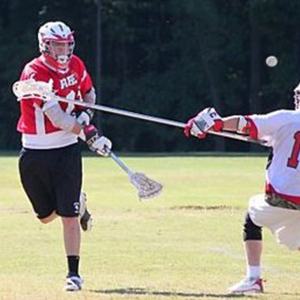
Matt Dusek
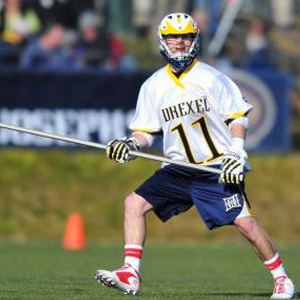
Greg Edmonds
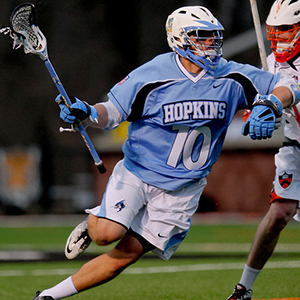
Jimmy Marlatt
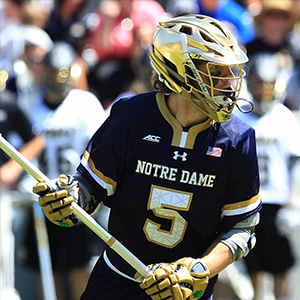
Travis Puls
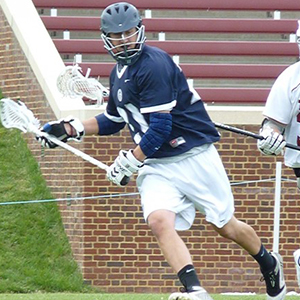
Jack Runkel
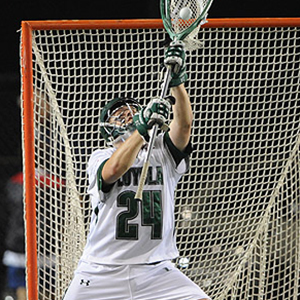
Taylor Stothoff
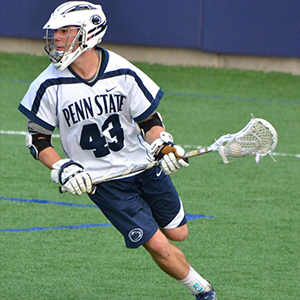
Justin Ward

